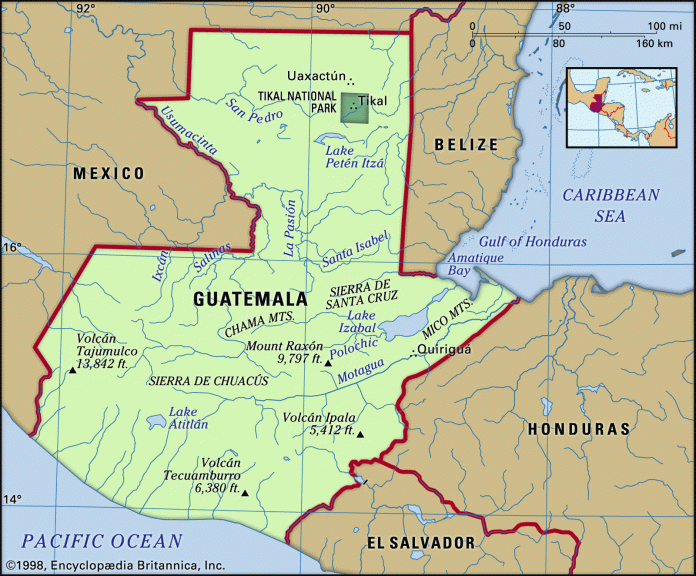Guatemalan authorities evacuated more than 1,000 people and closed a road as Central America’s most active volcano erupted Thursday, spewing thick clouds of ash over farms and towns not far from the capital city.
Civil protection official Oscar Cossio said 1,054 people had been evacuated from five communities near the foot of the volcano and moved to a sports hall for shelter.
He said that number was likely to rise as a full accounting of the evacuees was carried out.
Guatemala’s Conred disaster centre said the volcano named Fuego, Spanish for “fire,” was sending out “pyroclastic flows” — a high-temperature mix of gas, ash and rock fragments “which descend with great speed down the flanks of the volcanic complex.”
The ash column ejected by Fuego reached more than 6,000 meters (some 19,000 feet) above sea level.
Conred said ash was falling to the west and southwest of the volcano, in a direction away from the capital Guatemala City, which is 22 miles (35 kilometers) to the northeast.
Stronger emissions could follow as the “high level” eruption continues, and it warned that with rainfall forecast, mudslides could form.
Conred official Rodolfo Garcia estimated that 130,000 people live within areas exposed to falling ash, which came down as far as 62 miles (100 kilometers) from the crater.
He said 13 emergency shelters had opened in four nearby towns, capable of providing refuge to 7,600 people.
The authorities opted to close the RN-14 route on the slopes of the volcano that connects several towns to the colonial city of Antigua, the country’s main tourist attraction and a UNESCO World Heritage site.
It advised those living in areas at risk of the ash cloud to carefully follow any instruction from the authorities and urged locals and tourists to avoid a restricted area of seven kilometers around the volcano.
Residents should cover water tanks to avoid contamination, wear masks so as not to breath in the ash, clear fallen debris from the roofs of their homes to prevent damage caused by heavy deposits, and have evacuation survival kits ready for themselves and their pets.
Transit police released photos showing autos and motorcycles stopped along highways to avoid getting bogged down in fallen ash.
Last December, an eruption of lava and ash by the same volcano forced Guatemalan authorities to temporarily close the country’s largest airport.
The 3,763-meter tall volcano erupts every four to five years on average.
In 2018, an eruption sent rivers of lava pouring down its sides, devastating the village of San Miguel Los Lotes, killing 215 people and leaving a similar number missing.
Guatemala has two other active volcanoes — Santiaguito in the west of the country and Pacaya in the south.

Call:
Sandra - 07069148333
Pauline - 08174374150
Scholastica - 09060678434













